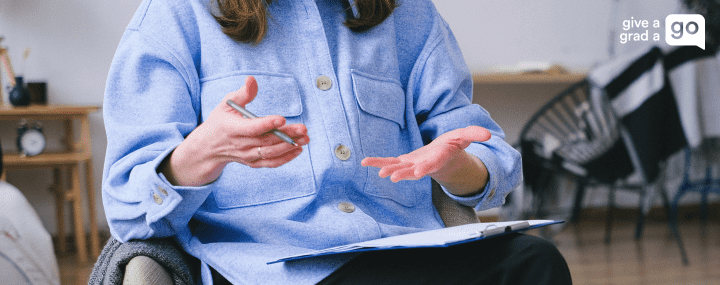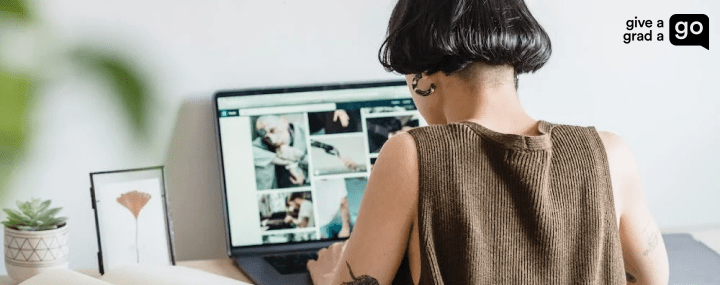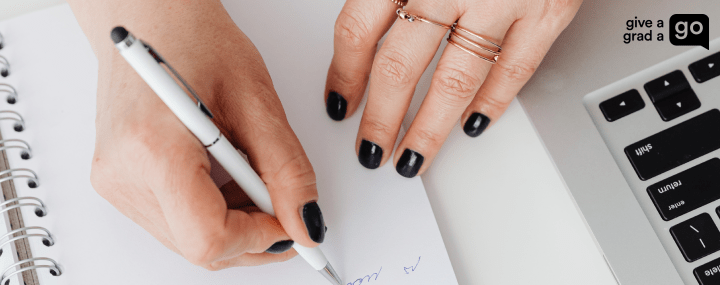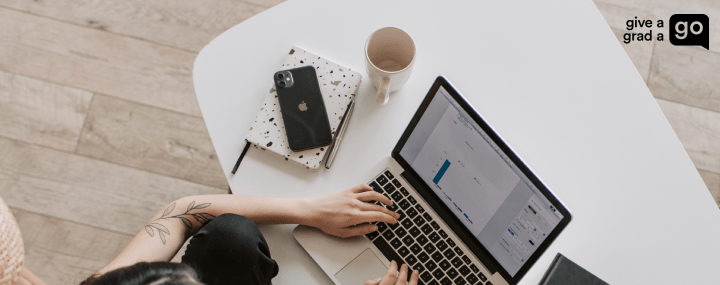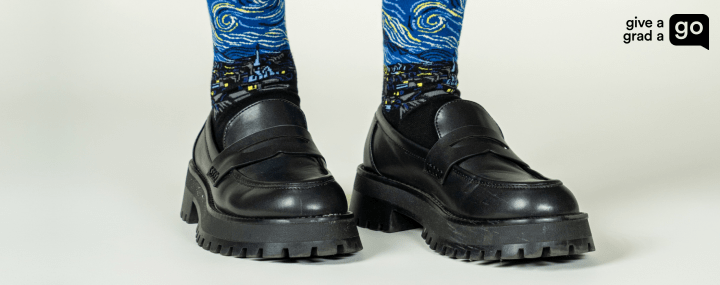Wondering what to do in a job interview and how to nail your first job interview? Here are our top tips and what to expect in a job interview:
1. Get to know the job interview structure
Wondering how does a job interview work? Job interviews have certain protocols and structures which are good to know about before attending an interview, so you’re not alarmed by anything and feel relaxed knowing what to expect.
Typically, an interview will be held at the company’s office and you will be in communication with the interviewer before your interview to organise logistics.
The interview will usually begin with the interviewer asking a few general questions about yourself.
As the conversation develops, they will usually ask more in-depth questions about your knowledge of the role and why you think you’re a great match.
Our top tip is to make an interview more of a conversation and ask questions throughout to keep the conversation fluid.
You may think interviews are a one-sided conversation where you only can only respond to the questions employers ask.
However, employers actually value candidates who ask engaging questions throughout, as this shows you have a genuine interest in the company and role and possess great communication skills.
Interviews usually end with the interviewer letting you know they will be in touch soon with updates about your application and will ask if you have any questions for them.
Use this as a chance to ask challenging questions to the employer, try to avoid generic questions, but bring in any research you’ve done on the company into your questions. Be sure to also thank the employer for their time and that you’re appreciative for the opportunity.
2. Have a solid understanding of the role you’re applying to
Our next piece of first interview advice is to research the role you’re applying to in detail.
Interviewers will ask questions related to your understanding of the role, such as ‘why do you think you’re a great fit for the role?’ and ‘tell me what you know about the role?’, to understand your knowledge and to see if you’re a great fit for the role.
To successfully answer these questions, it’s important to thoroughly read over the job description and make sure you know what the day-to-day duties of the role involve, what are the most important skills to have and where the role fits into the wider company.
You want to confidently show an employer you have a solid understanding of the role, giving convincing reasons that you’ve applied because you have the skillset to succeed in the role and mentioning reasons why this role particularly interests you.
Check out our blog for more ways on how to research a role and how to standout in a job interview.
3. Prepare for commonly asked interview questions and practice talking about your achievements
A crucial step in preparing for your first job interview, is getting accustomed to the type and style of interview questions employers may ask you and how to best answer these.
It can be difficult talking about your experience and your achievements if you’ve never done so before, so practice is key here.
Read over your graduate CV so you’re accustomed to all of your previous work experience, qualifications and skills, making note of the key skills to include that are most relevant to the role you’re interviewing for.
Then spend some time answering common interview questions out loud, either by yourself or have someone else ask you the questions to practice your answers.
If you’re wondering what to bring to your first job interview, it’s useful to bring along a copy of your graduate CV to give to the employer – this shows great organisation skills and that you’re knowledgeable of how interviews work.
For some common questions to prepare for a job interview, we’ve put together a helpful video playlist on ‘the top interview questions and how to answer them’.
Don’t forget to subscribe to our YouTube channel to keep up-to-date with all our useful updates!




